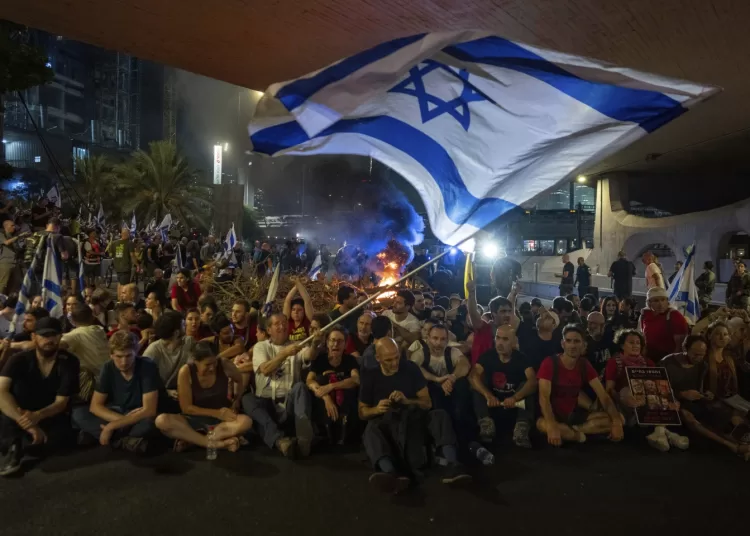TEL AVIV — A rare call for a general strike in Israel to protest the failure to return hostages held in Gaza led to closures and other disruptions around the country on Monday, including at its main international airport. But it was ignored in some areas, reflecting deep political divisions, according to AP.
Hundreds of thousands of Israelis had poured into the streets late Sunday in grief and anger after six hostages were found dead in Gaza. The families and much of the public blamed Prime Minister Benjamin Netanyahu, saying they could have been returned alive in a deal with Hamas to end the nearly 11-month-old war.
But others support Netanyahu’s strategy of maintaining relentless military pressure on Hamas, whose Oct. 7 attack into Israel triggered the war. They say it will eventually force the militants to give in to Israeli demands, potentially lead to more successful rescues and ultimately annihilate the group.
Israel’s largest trade union, the Histadrut, called for a general strike for Monday, the first since the start of the war. It aims to shut down or disrupt major sectors of the economy, including banking, health care and the country’s main airport.
Airlines at Israel’s main international airport Ben-Gurion were halting outgoing flights between 8:00 and 10:00 a.m. Those flights either departed early or were slightly delayed, and travelers were seen lining up at check-in counters despite the limited disruption. Arriving flights were continuing as usual during that time, according to the Israel Airports Authority.
Banks, some large malls and government offices were all closed due to the strike and public transit was limited. Municipalities in Israel’s populated central area, including Tel Aviv, were participating in the strike, leading to shortened school hours and cancellations for public daycares and kindergartens.
Many municipalities, however, including Jerusalem, were not participating in the strike. Israeli media reported that the state appealed to a labor court to cancel the strike, saying it was politically motivated.
Netanyahu blamed Hamas, saying “whoever murders hostages doesn’t want a deal.”
Hamas blamed their deaths on Israel and the United States, accusing them of dragging out the talks by issuing new demands, including for lasting Israeli control over two strategic corridors in Gaza. Hamas has offered to release the hostages in return for an end to the war, the complete withdrawal of Israeli forces and the release of a large number of Palestinian prisoners, including high-profile militants.
One of the six hostages was Israeli-American Hersh Goldberg-Polin, 23, a native of Berkeley, California, who lost part of his left arm to a grenade in the attack. In April, Hamas issued a video that showed him alive, sparking protests in Israel.
He was one of the best-known hostages, and his parents had led a high-profile campaign for the captives’ release, meeting with President Joe Biden, Pope Francis, and addressing the Democratic National Convention last month.






Discussion about this post